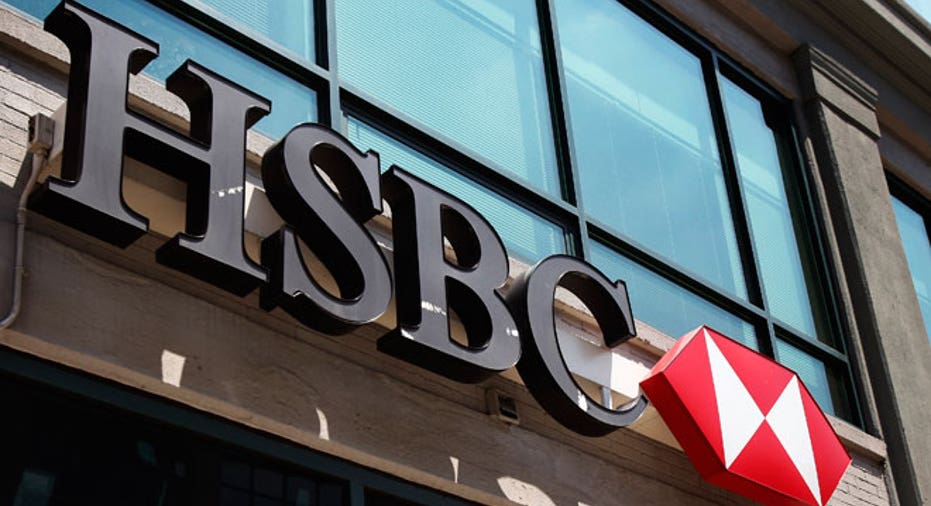HSBC's 2016 Pre-Tax Profit Slumps 62%, Shares Fall

HSBC Holdings reported a 62 percent slump in annual pre-tax profit that fell way short of analysts' estimates as the British bank took hefty writedowns from restructuring and pointed to brakes on revenue growth.
HSBC shares slid more than 6 percent after the company reported revenues fell by a fifth from 2015, underscoring the challenge it faces to boost returns amid low global interest rates and slowing economic growth in its core markets of Britain and China.
Europe's biggest bank by assets generated profit before tax of $7.1 billion in 2016 compared to $18.87 billion for the previous year, well below the average analyst estimate of $14.4 billion according to Thomson Reuters data.
HSBC also announced a new $1 billion share buy-back, as the lender continued to return cash to shareholders from the sale of its Brazilian business.
The bank's core capital ratio was 13.6 percent, against expectations of 13.8 percent, and analysts said the disappointing overall results could drive down forecasts for the stock.
The bank signaled a number of factors that would pressure its revenues in 2017, including a $500 million increase in regulatory capital costs, lower interest rates in Britain and adverse foreign exchange rates.
"We think weak income trends and significant guided headwinds mean consensus downgrades today," Jason Napier, analyst at UBS, wrote in a research note on Tuesday.
SWISS MISS
HSBC fell to a $3.4 billion fourth-quarter loss, against analysts' expectations for a profit, on a $3.2 billion impairment in its private banking business as the lender's accounting valuation of the unit caught up with years of declining performance.
HSBC effectively built out its Swiss private bank from its $10 billion purchase of Republic National Bank of New York and Safra Republic Holdings in 1999, banks controlled by Lebanese financier Edmond Safra.
But the subsequent emergence of major compliance failures at those operations ate into the bank's bottom line and hurt its reputation, leading HSBC to radically restructure the business.
HSBC CEO Stuart Gulliver said the restructured private bank is now viable as a slimmed-down operation providing advice to wealthy clients referred from the lender's other business lines.
"What this doesn't mean is that we are selling the private bank... it means we have restructured the private bank and that's now behind us," Gulliver told Reuters.
BUYBACK
The $1 billion share buy-back takes HSBC's announced buy-backs since the second half of 2016 to $3.5 billion following the bank's disposal of its Brazil business last July in a $5.2 billion deal.
The buy-back program has driven the lender's shares to be among the best-performing European bank stocks since the June 23 EU vote, climbing 53 percent in London against a 28 percent increase in the STOXX Europe index of 600 banks
HSBC's Gulliver said on Tuesday the bank had seen little impact from the referendum outcome on its business but that it was still on track to relocate 1,000 of its 43,000 UK-based workers to Paris once Britain leaves the EU.
"There will be 1,000 jobs that will have to move, because it would be unlawful for that work to be carried out from the UK, but I don't think this is a problem for the city of London," Gulliver said.
HSBC Chairman Douglas Flint confirmed in the bank's annual report that it planned to name his successor by the end of the year, but did not offer any update on progress in finding suitable candidates.
HSBC rival Standard Chartered last July named former deputy governor of the Bank of Spain Jose Vinals as its new chairman, ending a 16-month search that underscored the challenge of finding executives both palatable to regulators and capable of overseeing complex big banks.
Flint and his chief executive Gulliver have toiled since taking over HSBC in 2010 to shrink it, exiting more than 80 businesses and shedding over 43,000 jobs as the post-2008 crisis environment proved harsh for global mega-banks.
(Reporting By Sumeet Chatterjee and Lawrence White; Additional reporting by Michelle Price; Editing by Muralikumar Anantharaman and Keith Weir)



















